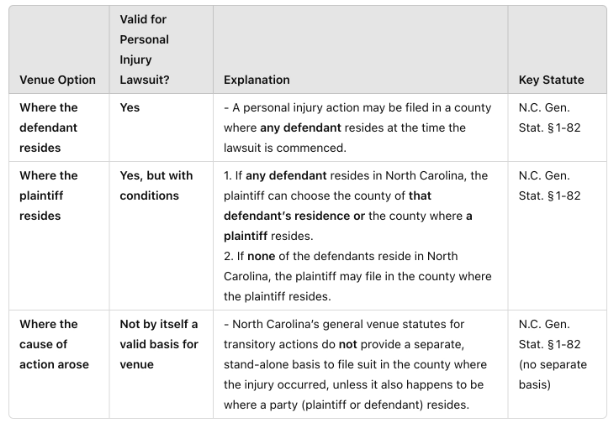
Serving Western North Carolina Since 1994 Get A Free Consultation

What If the Other Driver Is Uninsured or Underinsured?
North Carolina law requires drivers to carry uninsured/underinsured motorist (UM/UIM) coverage as part of standard auto policies. If the at-fault party doesn’t have insurance or doesn't have enough coverage to fully cover your damages, you may be able to turn to your own UM/UIM policy. Still, insurance companies don’t always pay readily. You may need to demonstrate your damages exceed the at-fault driver’s policy limits. At Teddy, Meekins & Talbert, we’re familiar with how insurers evaluate UM/UIM claims. Accident lawyers advocate for full and fair compensation for damages after an accident.


-
“David Teddy was more than worth the money... he actually took the time to listen.” - Rosslyn S.
-
“Ralph is the epitome of what a lawyer should be.” - Melinda R.
-
“Daniel Talbert is a top-notch attorney... he has a never-give-up approach even when things look bleak.” - Roger T.
-
“David Teddy and his team are outstanding!!! WORTH EVERY PENNY!” - Nicholas D.
How Important Is It to Establish Fault in Western NC Accidents?
Fault is often a key fact in a state that follows the contributory negligence doctrine. If you bear any blame, insurers might deny your entire claim. Gathering clear evidence—photos, witness statements, police reports—helps show the other driver’s negligence. In hilly or mountainous areas like Brevard or Asheville, road conditions might also play a role. If poor maintenance contributed to your crash, a government entity or property owner might share liability. Obviously, each case and fact pattern is different. Fault determination can be complicated if not downright confusing, so a thorough investigation is key. It’s also a good idea consult with an accident lawyer.
What Are the Typical Steps in the Insurance Claims Process?
- Notify Your Insurer: Before doing so, it’s often advisable to speak with an accident lawyer with substantial experience handling legal matters in Western North Carolina.
- Notify the At-Fault Driver’s Insurance Company: File an insurance claim for damages with the carrier that covers the “at fault” driver.
- Investigation: The at-fault carrier will evaluate police reports, speak with witnesses, and assess damage.
- Medical Examination: If you’re injured, seek immediate medical treatment. The responsible insurer may request medical records.
- Evaluation & Negotiation: The at-fault insurance carrier may offer a settlement based on your losses.
- Acceptance or Refusal: You can accept if it’s fair, negotiate further, or file suit if discussions stall.
These steps might vary slightly, but the core elements are consistent across Western North Carolina. If the other driver’s insurer disputes liability or you encounter stalling, it’s smart to retain legal counsel. Indeed, it makes sense to contact a lawyer right after a wreck to see if they can help throughout the filing process and determine whether retaining an attorney is a good idea.
Can I Handle the Claim on My Own?
Some people are able to manage small property-damage-only claims without an attorney. However, if you suffered injuries or anticipate long-term care costs, legal counsel can be invaluable. Insurance companies are represented by experienced claim adjusters and their own team of defense lawyers. Their goal is to minimize payouts, if not to entirely deny claims for damages. Going it alone, which is your right, might leave you vulnerable, especially under a contributory negligence framework. An attorney can handle evidence collection, consult accident reconstruction experts (as may be necessary), prepare for expert testimony, and negotiations with the insurance company and their adjusters. We represent our clients’ best interests. Our goal is to secure full and fair compensation that reflects your true losses.
Do I Need to See a Doctor If I Feel Fine?
Yes. Even if you feel okay after the wreck, conditions like whiplash or internal injuries may surface later. Prompt medical evaluation documents your symptoms and establishes that they stem from the accident. Delaying treatment can undermine your claim if insurers argue your injuries aren’t related. Make sure to follow all medical advice and keep records of doctor visits, prescriptions, and any therapy.
Can I Recover Compensation for Emotional Distress?
Potentially, yes. Car accidents can cause psychological harm—anxiety, depression, or post-traumatic stress. North Carolina law may allow recovery for emotional distress if you can show its severity and connection to the collision. Documenting the impact of a wreck (through therapy records, journals, or expert opinions) may strengthen your claim for PTSD, pain and suffering. Consult an attorney to learn how those types of damages after an accident might be valued in your case.
Does the Statute of Limitations Differ by County?
No. North Carolina generally follows a three-year statute of limitations for personal injury claims, regardless of county lines. That said, if you’re dealing with a government entity, different timelines might apply. Claims for Wrongful Death in North Carolina are subject to a two-year statute of limitations. Missing the deadline usually bars you from pursuing compensation. It’s wise to start the process early, especially if you need to gather complex evidence from multiple locations.
Teddy, Meekins & Talbert Law Firm: Your Resource for Western NC Accidents
Filing a car accident claim anywhere in Western North Carolina should involve careful consideration of jurisdiction, insurance coverage, and local nuances. Whether your crash occurred in Shelby, Morganton, Lenoir, or Asheville, understanding your legal rights and the contributory negligence rule can be pivotal to your success. Gathering evidence, seeking medical care, and evaluating insurance offers with a discerning eye can also help you approach the process more confidently.
If you have specific questions or need support at any stage, please reach out to Teddy, Meekins & Talbert at (704) 396-5155. Our team is ready to guide you through investigations, negotiations, or litigation—helping ensure your best interests are protected no matter where in Western NC your accident happened.


